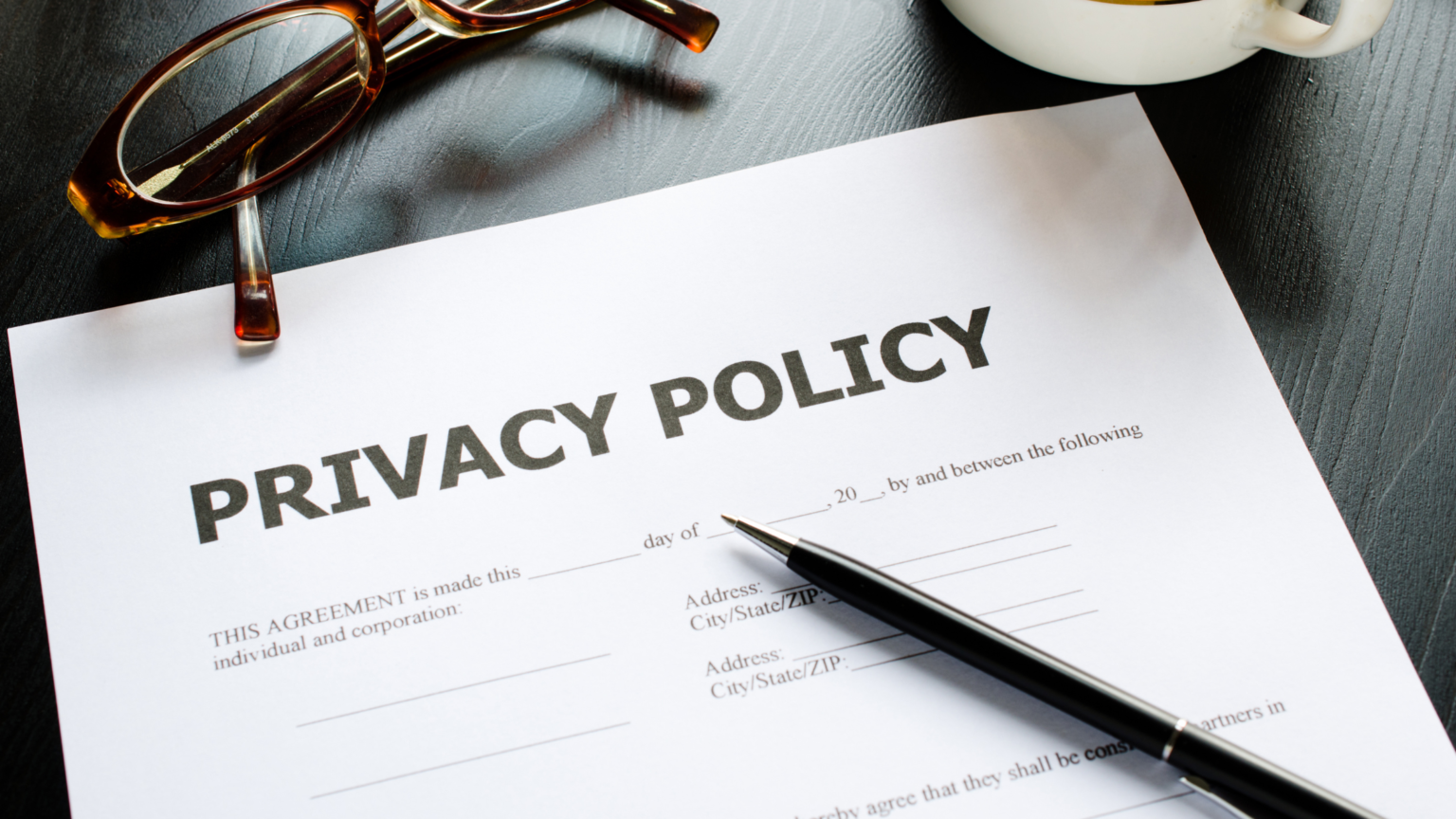The other day I ran across a former client’s website, and I always like to check in and see how they are doing. Unfortunately, their new designer did not include some crucial elements to the site, one of those being a Privacy Policy, which is what inspired this post.
So are websites required to have a privacy policy?
Short Answer: Yes. Even if you aren’t, do it anyway, and in some cases, yes, you are required.
It’s simply important to protect the privacy of your website visitors. Business owners in general may not even have a clue that this is a thing they need to think about (see our 10 Things every small business owner should know about their websites). This detailed guide talks about the legal needs, benefits, and useful parts of having a privacy policy. There are many examples and extra details in this answer that will help you fully understand “Are Websites Required To Have A Privacy Policy?” Along with that, it has more knowledge and long examples.
Understanding Privacy Policies
A privacy policy is a legal document that outlines how a website collects, uses, discloses, and manages a customer’s data. It’s essential for protecting a visitor’s privacy and complying with legal standards or winding up in some potentially unnecessary legal hassle.
Legal Requirements and Notable Cases
The requirement for a privacy policy depends on your audience’s location and the nature of your business. Laws like the GDPR in the EU and the CCPA in California mandate privacy policies for websites handling personal data. Notable legal cases highlight the importance of these policies:
- Google Inc. Street View Electronic Communications Litigation: This case emphasized the importance of clear privacy policies when Google faced legal challenges over data collection practices.
- Facebook Biometric Information Privacy Litigation: Facebook’s settlement in this case, involving the collection of biometric data without proper consent, underscores the need for explicit privacy policies.
Global Data Protection Regulations
- GDPR: Requires clear privacy policies for websites dealing with EU residents.
- CCPA: Mandates detailed privacy policies for websites collecting data from California residents.
- Other Laws: Various countries have their own regulations, making it crucial to tailor your privacy policy accordingly.
Benefits of a Privacy Policy
A well-crafted privacy policy builds trust, ensures legal compliance, and enhances your website’s professionalism. It’s a proactive step in safeguarding both your business and your users.
Creating a Privacy Policy: What to Include with Examples
Your privacy policy should be comprehensive and specific to your operations. Key elements include:
- Information Collection:
Example: “We collect personal information such as name, email address, and phone number when you sign up for our newsletter or create an account on our website.” - Usage of Data:
Example: “The personal information collected is used to personalize your experience on our website, provide customer support, and send periodic emails with updates and promotions.” - Data Protection:
Example: “We implement a variety of security measures to maintain the safety of your personal information, including SSL encryption for data transmission and secure servers for data storage.” - Third-Party Sharing:
Example: “We do not sell, trade, or otherwise transfer your personally identifiable information to outside parties, except to trusted third parties who assist us in operating our website, conducting our business, or servicing you, so long as those parties agree to keep this information confidential.” - User Rights:
Example: “You have the right to access, edit, or delete your personal information at any time. Please contact our support team to exercise these rights.”
The Global Impact and Specific Industry Requirements
The digital world knows no borders, and as such, a privacy policy is not just a local requirement but a global consideration. For instance, if your website attracts visitors from the European Union, compliance with GDPR is necessary regardless of where your business is based. Similarly, if you have visitors from California, the CCPA applies. This global impact means that understanding and complying with international privacy laws is crucial for any website owner.
Specific Industry Requirements
Different industries may have specific requirements when it comes to privacy policies. For example:
- E-commerce Websites: These sites often collect a vast amount of personal and financial data, making a comprehensive privacy policy essential for legal compliance and customer trust.
- Healthcare Websites: Under laws like HIPAA in the United States, websites dealing with health-related information have stringent requirements for privacy policies.
- Educational Websites: Sites that cater to children or educational institutions often fall under regulations like COPPA in the U.S., requiring detailed privacy policies regarding the collection of information from minors.
Frequently Asked Questions
- Does My Industry Require a Privacy Policy?
Industries dealing with health, financial, or children’s data often require a privacy policy due to regulations like HIPAA or COPPA. Outside of this, it’s still a good idea for every website to have on to avoid potential litigation. - If I Am Not in California but Am in the United States, Are Websites Required To Have A Privacy Policy?
While the CCPA targets California residents, it’s advisable for any U.S.-targeting website to have a privacy policy, considering potential similar laws in other states. - Can I Use a Free Template?
Free templates can be a starting point, but customization is key to ensure compliance and relevance. A couple of resources you can use are: PrivacyPolicyOnline.com, BenNadel.com, and PrivacyPolicies.com - What Happens if I Don’t Have a Privacy Policy?
Non-compliance can lead to legal penalties and damage to your reputation.
So are websites required to have a privacy policy?
You can’t have a legitimate and compliant website without a privacy policy, which is why having one is essential. Tailoring your policy to your specific needs and audience, while aligning with global data protection laws, is not just a good idea, but will save you from future litigious heartache.





